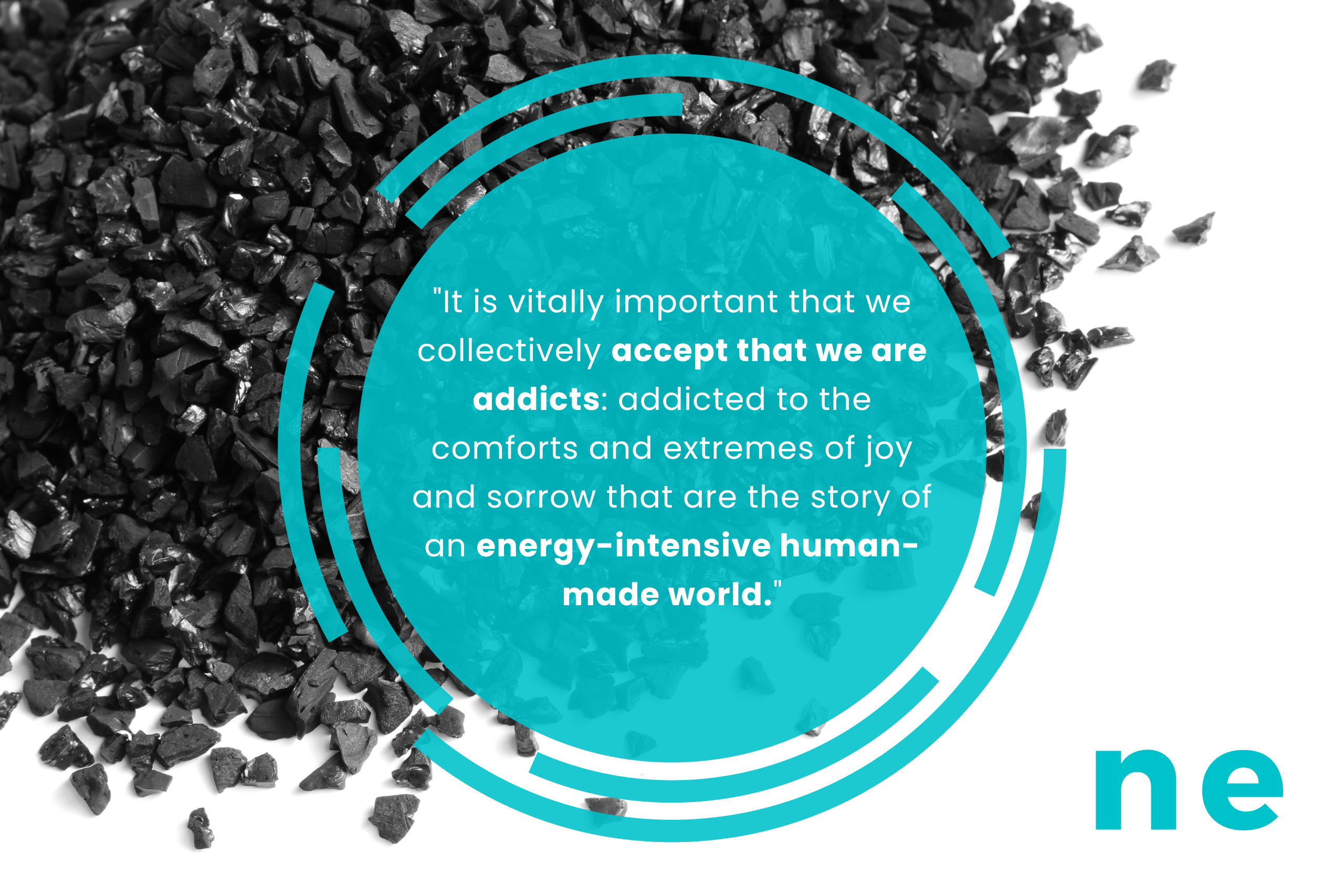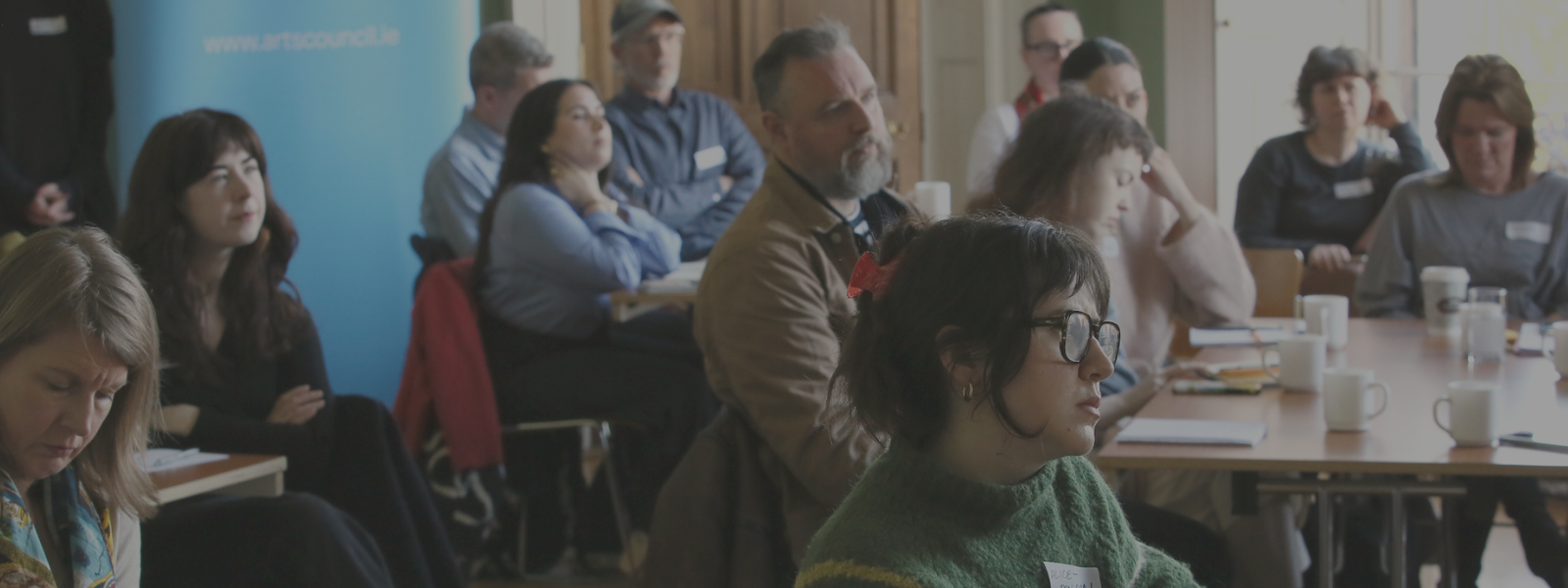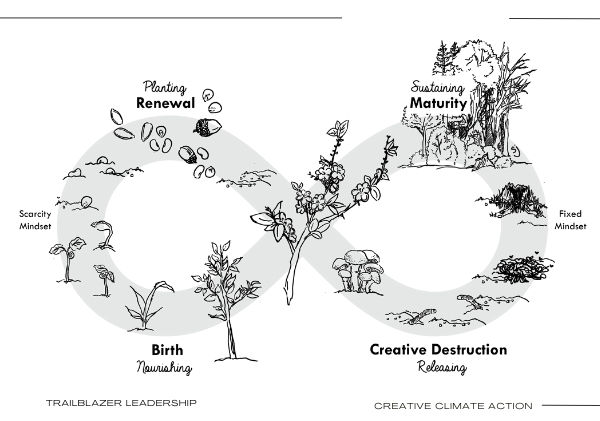As part of our series into the climate crisis, Native Events Energy & Transition projects manager, Stefano Semprini takes us on a journey all about Energy – our addiction to it, the concept of ‘energy blindness’ and finally, some solutions to our global energy addiction.
Here is the first in a three-part blog series, starting with ‘The Problem’ – our global energy addiction.
Energy Insights, Part I – The Problem
Let there be no doubt: we are uncontrollably addicted to fossil fuel-based energy. This will not be the first time that our collective energy use will have been compared to an addiction. Most of us have only a weak grasp of the extent and nature of our addiction. Soothsayers will have us believe that “renewable energy” (more on why this term is emphasised with quotation marks, later) will enable us to continue our addicted lifestyle without severe consequences or discomfort. That is a fanciful dream at best, a dirty lie at worst.
We are not here to point fingers and cast blame. And, even if it were so—what utility is there in blaming and finding fault with others? We are here to play our role in making a just, necessary energy transition possible and survivable.
If this tone sounds extreme to you, take a moment to reflect on that. Please entertain the possibility that this is not an extremist’s attempt to invoke yet another doomsday story, but rather an honest appraisal of the facts, by people who know a little something about something. Also, take note of how it feels to be alarmed at the severity of our addiction, and to feel like we are in a deep, dark hole of our own making.
Rest assured: whatever happens, we are all in it together.
 What does humanity’s energy addiction look like in the 21st century? Here are three facts which simply frame the problem:
What does humanity’s energy addiction look like in the 21st century? Here are three facts which simply frame the problem:
- We are using MASSIVE amounts of energy in a very short space of time: on average, human activity is burning fossil fuels at a rate 10 million times faster than the rate at which the matter that it is made of has accumulated in the “reserves” we have been tapping.
- Fossil fuel-derived forms of energy (coal, oil, natural gas) are incredibly convenient: easy to transport, highly energy-dense, relatively safe to work with (under the well-developed, industry-standard safety precautions) and, best of all, dirt cheap (all things considered).
- Our financial economy has committed to a completely untenable future energy scenario: If we assume that more than 1.5°C of global warming is a bad thing for the current forms of life on earth (including roughly eight billion humans), and that we should try to limit our greenhouse gas emissions to levels that will not breach this temperature rise ceiling, then we have (at the time of writing) an emissions “budget”* that is 10 times smaller than the amount of emissions we will produce if all the fuels which the global stock market is currently invested in, are in fact extracted and burned.
(*That which we can burn while staying below the 1.5°C ceiling.)
The bottom line: our addiction is at its worst, or close to it. What happens next is a choice.
 This is the first in a three-part series: Native Events’ Energy Insights. We shall pause here and urge readers: please go back to the three points mentioned above; reread and digest them; also, question them, do your own research beyond the scientifically-validated sources that we have provided. It is vitally important that we collectively accept that we are addicts: addicted to the comforts and extremes of joy and sorrow that are the story of an energy-intensive human-made world.
This is the first in a three-part series: Native Events’ Energy Insights. We shall pause here and urge readers: please go back to the three points mentioned above; reread and digest them; also, question them, do your own research beyond the scientifically-validated sources that we have provided. It is vitally important that we collectively accept that we are addicts: addicted to the comforts and extremes of joy and sorrow that are the story of an energy-intensive human-made world.
In due course, we will expound on each of the three points to offer more detailed explanations of some key considerations of our energy addiction.
The next piece will address the question: why is it this way?







